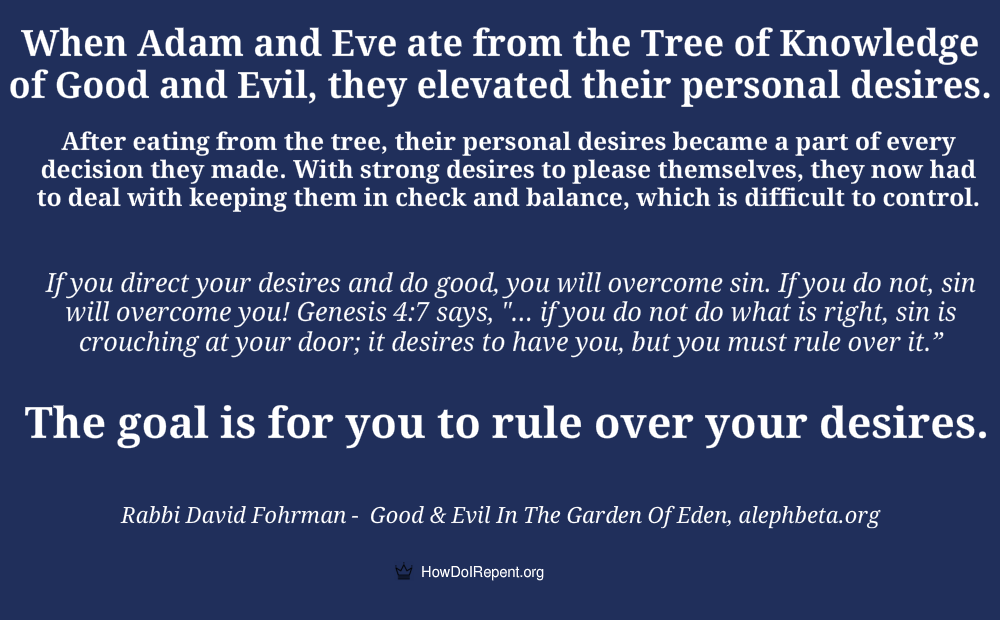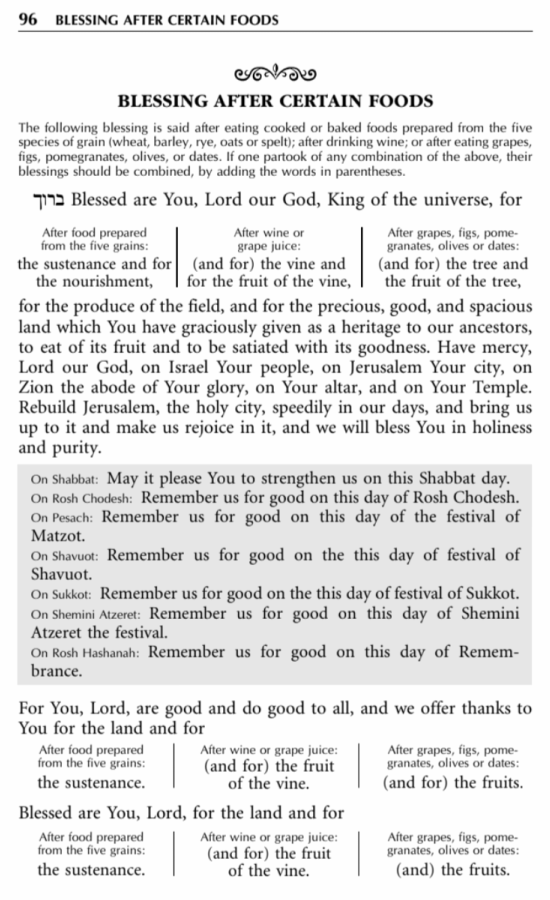We need to refine our thoughts and behavior to live a righteous life. It starts with a change of attitude.
Righteousness is desiring the things of God more than life itself. It is desiring to attach yourself to the people of Israel and the Land, desiring to learn God’s Instructions (the Torah), and ultimately desiring the Kingdom of God. If you do not wake up every day desiring to know God more, then you can make a decision to start today. Psalm 16:8 says, “I have placed the Lord before me continuously”. Living righteous is to live a life of repentance, loving your neighbor, and loving God. To desire God is to have God and His ways on your mind all of the time.
In a song that David sang in 2 Samuel 22:21 he says, “The Lord has dealt with me according to my righteousness; according to the cleanness of my hands he has rewarded me.” Then in verse 25 he said, “The Lord has rewarded me according to my righteousness, according to my cleanness in his sight.” God will deal with us based on how we are living a righteous life too. In Job 17:9 it says, “Nevertheless, the righteous will hold to their ways, and those with clean hands will grow stronger.” Repentance is counted as righteousness.
Although by our righteousness itself, we are not worthy to stand in the presence of God, but we have been commanded to be righteous and holy before the Lord (Hebrews 10:38 & Hebrews 12:14). Holiness means to be separated, and more specifically we are to separate ourselves from the things of this world. Another definition of holiness is transparency, which is allowing God to be transparent in your life.
1 Peter 2:5 says that we should “be a holy priesthood, offering spiritual sacrifices acceptable to God through Jesus Christ”.
To fully understand the level of holiness (separation) that Peter was talking about is a much longer discussion, but as a child of God, He desires us to live where He can show Himself through us. Through this process of living a righteous life, we gain the blessing of knowing Him more.
Repentance is a return to the path of righteousness.
Believing and Desiring the Things of God
In Genesis 15:6 it says, “Abraham believed the Lord, and He credited it to him as righteousness.” This was before Abraham was a Jew, while he was a gentile. The Bible also says that Abraham was obedient to the Laws of God. In fact, that is the entire reason God made a covenant with Abraham as it is stated in Genesis 26:5, “because Abraham obeyed Me and did everything I required of him, keeping my commands, my decrees and my instructions.” Because Abraham desired the things of God, Abraham acted on his desires by faith and he was obedient. The Rabbis even say that Abraham knew all of the Laws of God because they were passed down from Adam through Noah and Shem. If you take the time to map out the genealogy you will see that Abraham lived for 50 years during the time of Noah and learned from him, and Noah’s oral teachings can be traced all the way back to Adam. It is understandable why Abraham was keeping the appointed times and all the Laws of God, because they were given to him orally through his family line.

Blessing God’s Name
In order to desire God more, you need to have God on your mind all of the time. David said in Psalm 16:8 “I have placed the Lord before me continuously”. One way to do that is to bless the name of the Lord all the time. Most Jews say a blessing the moment they wake up, when they drink a new cup of water or coffee, eat something, when they go to the bathroom, and when they go to bed. These are just a few examples. Paul said we should give thanks in everything. Paul was a Jew so when he ate bread he would have said, “Blessed are though O’Lord our God, King of the Universe who brings forth the bread of the earth”. When Paul drank wine, he would have said “Blessed are though O’Lord our God, King of the Universe who creates the fruit of the vine”. When he would have had any other drink or food he would have said, ”Blessed are though O’Lord our God, King of the Universe who creates all things according to His word”. The Rabbis teach that a person should bless the name of God 100 times a day. That is one way to keep the Lord before you continuously.
If you put your mind to it, it is not hard to say a blessing before you get a cup of coffee or tea, or before you eat something. Many people may have grown up blessing their food before they ate, but one can easily switch to blessing God’s name “instead of the food” before you eat or drink. That is the beginning of the the prayer that Jesus told us to pray when he said pray that God’s name be sanctified in the beginning of the Lord’s prayer (Matthew 6:9-15). We are sanctifying God’s name when we keep His commandments.
Deuteronomy 8:10-11 says, “When you have eaten and are satisfied, praise the Lord your God for the good land he has given you. Be careful that you do not forget the Lord your God, failing to observe his commands, his laws and his decrees that I am giving you this day.”
It says give thanks to God after we have eaten. Assuming you eat three times a day, you can choose to sanctify God’s name by keeping this command of giving thanks after you eat.
Obedience must be by faith and in love, and it has to be with a sincere desire to understand the ways of God more. Not only because you want to know God better, but because you want to obey God as in service to the King. To love the King with all your heart and understand that you are preparing the way for Him to return, is what the Gospel message is all about! Obedience is something you do when no one is looking. If you place the Lord before you, and in all things giving thanks, you will naturally serve the King at such a higher level, and you will be fulfilling the laws of the Torah just as our Messiah did before us.
In everything give thanks, for this is the will of God (1 Thessalonians 5:18). Giving thanks will help you with living a righteous life, and it will refine your thoughts and behavior. Living a righteous life is about setting your mind on God and applying His word in your life.
If you want to know more about Grace after Meals here is one that we found on Chabad.org

Back to Day 10 | Continue to Day 12

